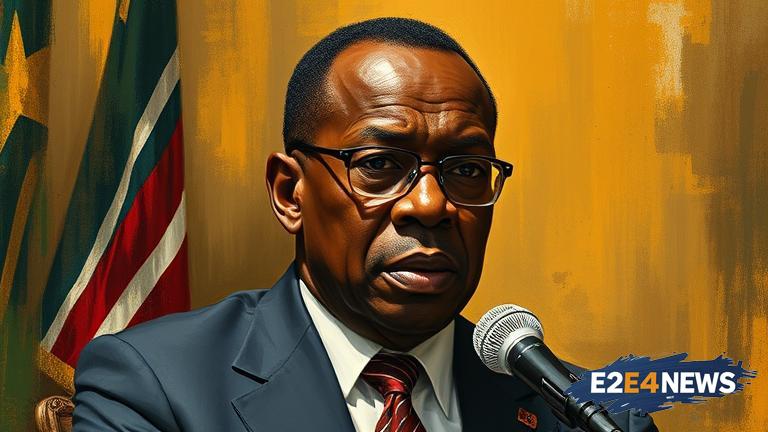In a shocking turn of events, former Chief Justice David Maraga has publicly criticized President William Ruto’s efforts to combat corruption in Kenya, labeling them as deceptive. Maraga, who served as the Chief Justice of Kenya from 2016 to 2021, made the remarks during a recent interview, sparking a heated debate about the government’s commitment to fighting graft. According to Maraga, the current administration’s approach to tackling corruption is nothing but a smokescreen, designed to deceive the public and distract from the real issues. He argued that the government’s focus on high-profile arrests and prosecutions is merely a publicity stunt, rather than a genuine attempt to address the root causes of corruption. Maraga’s comments come at a time when President Ruto’s administration is facing increasing scrutiny over its handling of corruption cases. Despite the government’s claims of making significant progress in the war on graft, many Kenyans remain skeptical, citing the lack of tangible results and the perceived leniency towards corrupt officials. The former Chief Justice’s remarks have been seen as a significant blow to the government’s credibility, with many interpreting them as a vote of no confidence in President Ruto’s leadership. Maraga’s criticism has also sparked a wider debate about the role of the judiciary in combating corruption, with some arguing that the courts have been too soft on corrupt officials. Others have defended the judiciary, pointing out that the courts can only work with the evidence presented to them, and that the prosecution’s failure to secure convictions is often due to a lack of sufficient evidence. The controversy surrounding President Ruto’s war on graft has also raised questions about the government’s commitment to transparency and accountability. Many have accused the administration of using corruption as a political tool, targeting opponents and critics while turning a blind eye to allies and supporters who are accused of graft. The situation has been further complicated by the fact that several high-ranking officials, including cabinet ministers and lawmakers, have been implicated in corruption scandals, yet remain in office. As the debate rages on, Kenyans are left wondering whether the government is truly committed to fighting corruption, or if it is just a cleverly crafted public relations campaign. The country’s history of corruption has had a devastating impact on its economy and development, with billions of dollars lost to graft and mismanagement. The World Bank estimates that corruption costs Kenya around 2% of its GDP annually, a staggering amount that could be used to fund vital public services and infrastructure projects. In recent years, Kenya has made significant progress in improving its business environment and attracting foreign investment, but corruption remains a major obstacle to growth and development. The government’s failure to effectively tackle corruption has also led to a decline in public trust, with many Kenyans feeling that the system is rigged against them. As the country moves forward, it is clear that a more comprehensive and sustained approach to combating corruption is needed, one that involves all branches of government, as well as civil society and the private sector. This includes strengthening institutions, improving transparency and accountability, and ensuring that those responsible for corruption are held to account. Ultimately, the success of President Ruto’s war on graft will depend on his ability to demonstrate a genuine commitment to fighting corruption, and to take concrete steps to address the root causes of the problem. Until then, the Kenyan public will remain skeptical, and the country will continue to suffer the consequences of corruption. The government must take heed of Maraga’s warning and take immediate action to restore public trust and confidence in the war on graft. The time for rhetoric is over, and the time for action has begun. Kenyans demand a comprehensive and sustained approach to combating corruption, and they expect their leaders to deliver. The future of the country depends on it.
